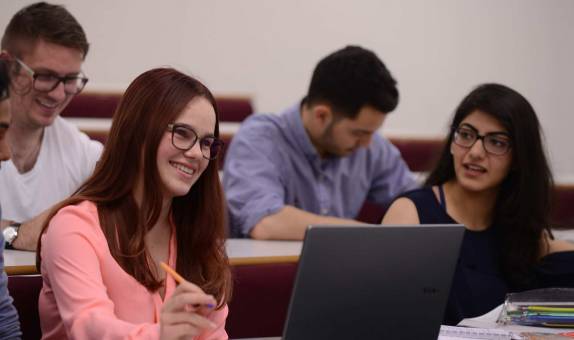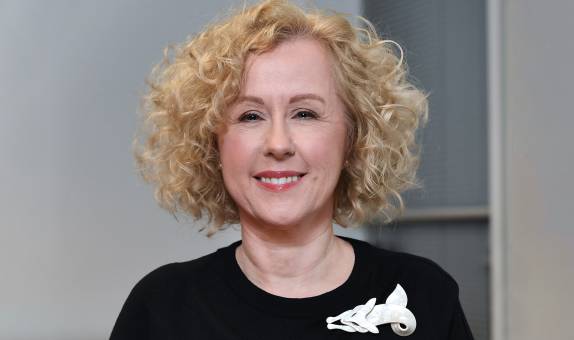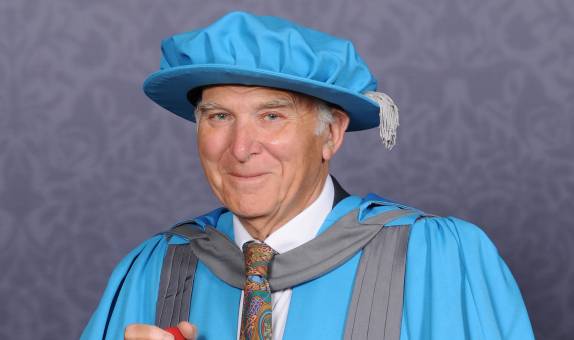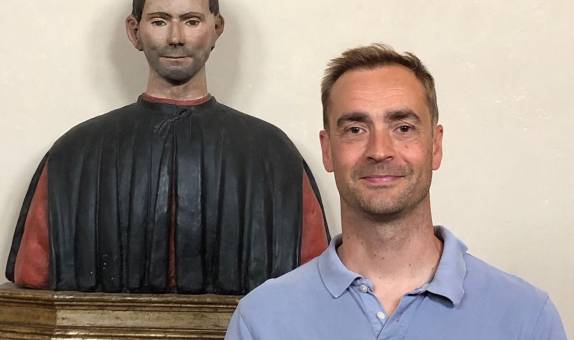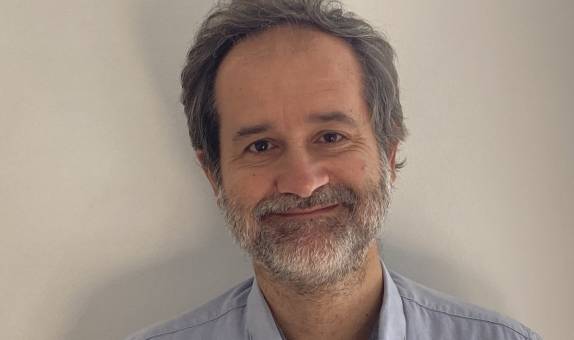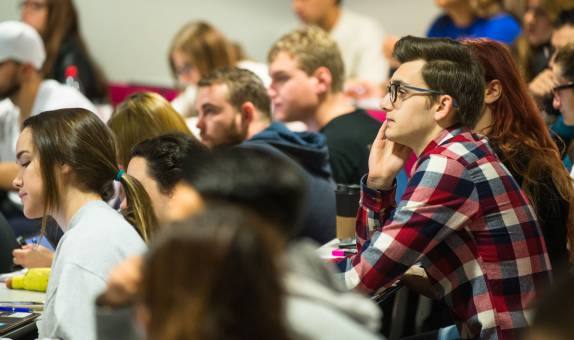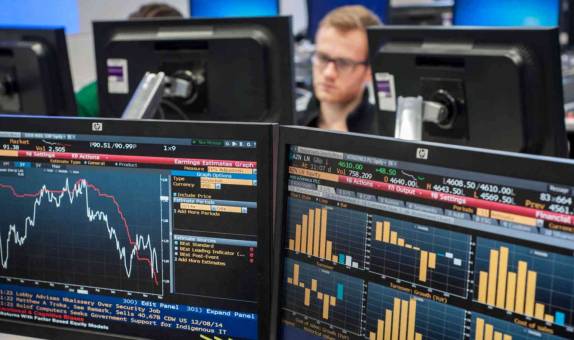Welcome to the Department of Economics
Understanding a data-driven world
Economics at Kingston unveils the intricate dynamics governing the world's financial systems, enabling you to comprehend the forces shaping markets, industries, and societies.
Our core mission is to explore the reasoning and consequences of choices undertaken by individuals, households, enterprises, and governing bodies.
At Kingston, we empower you to master quantitative techniques, honing your ability to interpret data, construct models, and predict trends, invaluable skills in today's data-driven world.
A stellar reputation
Kingston has a reputation for excellent teaching quality, with the economics department having scored high marks in official inspections carried out by the government's Quality Assurance Agency.
Our dedication to excellence has led us to ranking third in London for Economics in the Guardian league tables of 2023, among the capital's finest institutions.
Endless career opportunities
An economics background opens doors across diverse sectors, from finance and consultancy to government agencies and NGOs, presenting versatile career pathways.
Our graduates can be found in the business and finance world, as well as within marketing, sales, media, and managerial positions within commercial, industrial, and public sectors. They also make impactful contributions in fields such as politics, science, engineering, IT, healthcare and education.
Employers place high significance on attributes like teamwork, adept presentation abilities, and the capacity to both provide and assimilate feedback: the Working as an Economist core module cultivates these skills to ensure our students leave Kingston well-prepared for the real world of work.
Kingston's Department of Economics
What's it like to study economics at Kingston University?

Learning and teaching in the Department
Easily accessible and ready to assist, the friendly teaching team is dedicated to aiding your university transition. The personal tutor scheme, designed to help you from your very first week, exemplifies this commitment. In your first year, you'll join a small seminar group led by the same team member each semester. This leader doubles as your personal tutor throughout your degree, offering guidance in learning, personal growth, and career aspirations, so you can be confident you always have somewhere to turn for advice.
Change the world: our courses
We offer a range of undergraduate and postgraduate programmes in Economics, which can also be combined with subjects outside the department. Students are taught in practical and interactive workshops, lectures, seminars and one-to-one supervision.
Undergraduate courses
Our courses enable you to combine your study with that of another subject if you want to, and includes the opportunity to study abroad at a partner university in the second year.
A rich research culture
The Department fosters a vibrant research culture. Faculty staff and students share discoveries at global conferences and publish in academic journals, books, and commissioned research reports. Our research enriches our teaching, with staff publications integrated into many study materials.
There is a track record of excellent inter-disciplinary research. The Department and has had successful grant funding from the Institute for New Economic Thinking, International Labour Organisation, Global Challenges Research Fund and the Trust for London.
It also has a regular research seminar series and frequently hosts academic workshops and conferences on areas of economic development and economic crises, as part of ongoing and completed research projects.
The research is broad-ranging, spanning four themes with several connecting sub-themes and overlapping areas of focus:
Research centres and hubs
Our academics and researchers work across disciplinary boundaries through the Centre for Research on Communities, Identity and Difference (CResCID) and Small Business Research Centre (SBRC) within the overarching Faculty of Business and Social Sciences. Our research is reputed for its emphasis on a pluralist approach enabling staff with both mainstream and heterodox expertise in economics to work collaboratively in a dynamic, stimulating and inclusive research environment.
The Pluralist Economics Research Group reflects the pluralist nature of economics at Kingston, contributing to the Behaviour, Business and Policy KERI, the new university knowledge exchange research institute.
Research degrees programme
Our doctoral (PhD) programme is intended for students who already have a postgraduate qualification, such as MA or MSc. We also offer an opportunity for MA or MSc by research, which might be used as the basis for proceeding to a doctoral programme.
The aim of our research degree programme is to offer opportunities for students to enhance their knowledge and understanding of economics and to develop their research skills - both generic research skills and also competence within the methodologies that are typical of research in economics. You can read more and apply here.
Economics discussion papers
Kingston University Economics Discussion Papers are reports on research in progress, authored and peer-reviewed by members, associates and visitors of the Department of Economics.
The series features contributions in several areas of economics, from mathematical and quantitative methods to international economics; macro and microeconomics to development and technological change; labour and demographic economics to health, education, and welfare…and much more!
For comments, information or submitting your manuscript please reach out to Dr Andrea Ingianni.
Fostering community transformation
Embedded in our University's core values is a steadfast commitment to engaging with and enriching our local community. Within the Department of Economics, this dedication takes tangible form through a range of impactful initiatives. These encompass dynamic consultancy collaborations, strategic planning endeavours, and insightful analyses that collectively contribute to the betterment and sustainable development of our immediate surroundings.
Our department's active involvement in community-oriented projects underscores our unwavering belief in the power of economics to foster positive change on both a micro and macro scale, ultimately exemplifying the transformative potential of academia in action.
Consultancy
Economic analysis requires a careful assessment of costs and benefits. We have considerable experience in making such assessments and in applying the quantitative techniques that are typically of use. Contact us for an informal discussion if you have a project where an improved assessment of costs and benefits would be useful or a data resource which you think could deliver better value to you after an expert analysis.
As a large and experienced team of economists we have a wide knowledge of a variety of markets, industries, countries, regions, national and international organisations and institutions.
If we cannot assist with your particular requirements, we may know who can. For further information, please contact the Head of Department for Economics, Dr Simon Choat.
Local economic planning
We collaborate with Kingston University's Centre for Economic Research and Intelligence (CERI) to provide an advice and research service for local authorities, businesses and other organisations seeking to improve their knowledge of local economies.
Our previous work includes labour market analysis, economic impact analysis, local transport studies and the demand for leisure facilities.
Survey design and analysis
Market research: we can advise on the design of questionnaires and on the statistical analysis of survey returns. Our previous work includes readership surveys, survey of business forecasting practices, questionnaire-based research into SME growth and survival.
Contingent valuation: this method is used to investigate the value that consumers place upon apparently free goods, for example aspects of their environment. As such it can be a useful input to the management of non-marketed goods and services, for example local authority services.
Economics news
Economics graduate overcomes tough upbringing to land job in the City
Economics events
If there are no department-specific events listed here, please do check for University-wide events.
Staff in the department
Contact us
- Head of Department of Economics: Dr Simon Choat
- Contact the Course Administrator




